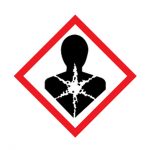Technical Translation Versus Canadian Regulatory Requirements
By: Kirsten Alcock, Manager of Product Safety, email
Technical translation is the transcription of scientific text from one language to another with close attention paid to both the specialized technical terminology. Dell Tech experts can successfully prepare accurate technical translations into multiple languages.
One thing to note with translations however is that simply translating a document from English to Canadian French does not mean that the document is compliant for Canada. We all understand that the requirements for providing a bilingual document for Canada can sometimes be time-consuming and costly but translating a document into French that IS NOT compliant for Canadian regulations in the first place will COST you even more. Do you want to take that compliance risk but simply translating your document into Canadian French?
Daily, I am asked to provide translations for documents that I know do not meet compliance for Canada. Simply translating it into Canadian French will not meet the requirements here. Canada has their own unique requirements that are different from other countries so if you’re looking to sell your product here, you need to determine that first. I can tell looking at a Safety Data Sheet (SDS) or label within minutes if it is missing information required for Canada. If one comes to me asking for a simple translation and I notice an issue, I will advise you immediately. This way you know ahead of time if your English document can be simply translated or if more effort and a compliance check are required.
For Example: Translating a United States Safety Data Sheet into Canadian French does not mean that the SDS itself is compliant. Canadian SDS have their own nuances and compliance lists that are required on an SDS. Examples of some of these lists and information required for inclusion are as follows:
- Occupational exposure limits set out by the individual Provinces
- Mention of the Domestic Substance List (DSL)/Non-Domestic Substance List (NDSL)
- Transportation of Dangerous Goods (TDG)
- HHNOCs and PHNOCs
- Currently, Canada requires Version 5 statements from the Globally Harmonized System (GHS).
Direct translation is not always the best route to go to ensure proper compliance with the country you are looking to sell into. If you are missing any of these aforementioned requirements within your current SDS and are looking to sell your product to Canada, we can author a one in the required languages set out in the Hazardous Products Regulations. In some cases, it can actually be more economical for Dell Tech to author the SDS from scratch rather than have a 20 page SDS translated.
Please feel free to contact us for further information on our translation services and how we can help keep your SDSs and labels in compliance.
Contact:
Dell Tech
Kirsten Alcock, B.Sc. (Hons)
Manager, Product Safety Group
519-858-5074
kirsten@delltech.com
Dell Tech has provided professional, confidential consulting services to the chemical specialty
industry in Canada, the USA, Europe, and Asia for the last 40 years.
Contact us today for more information.





